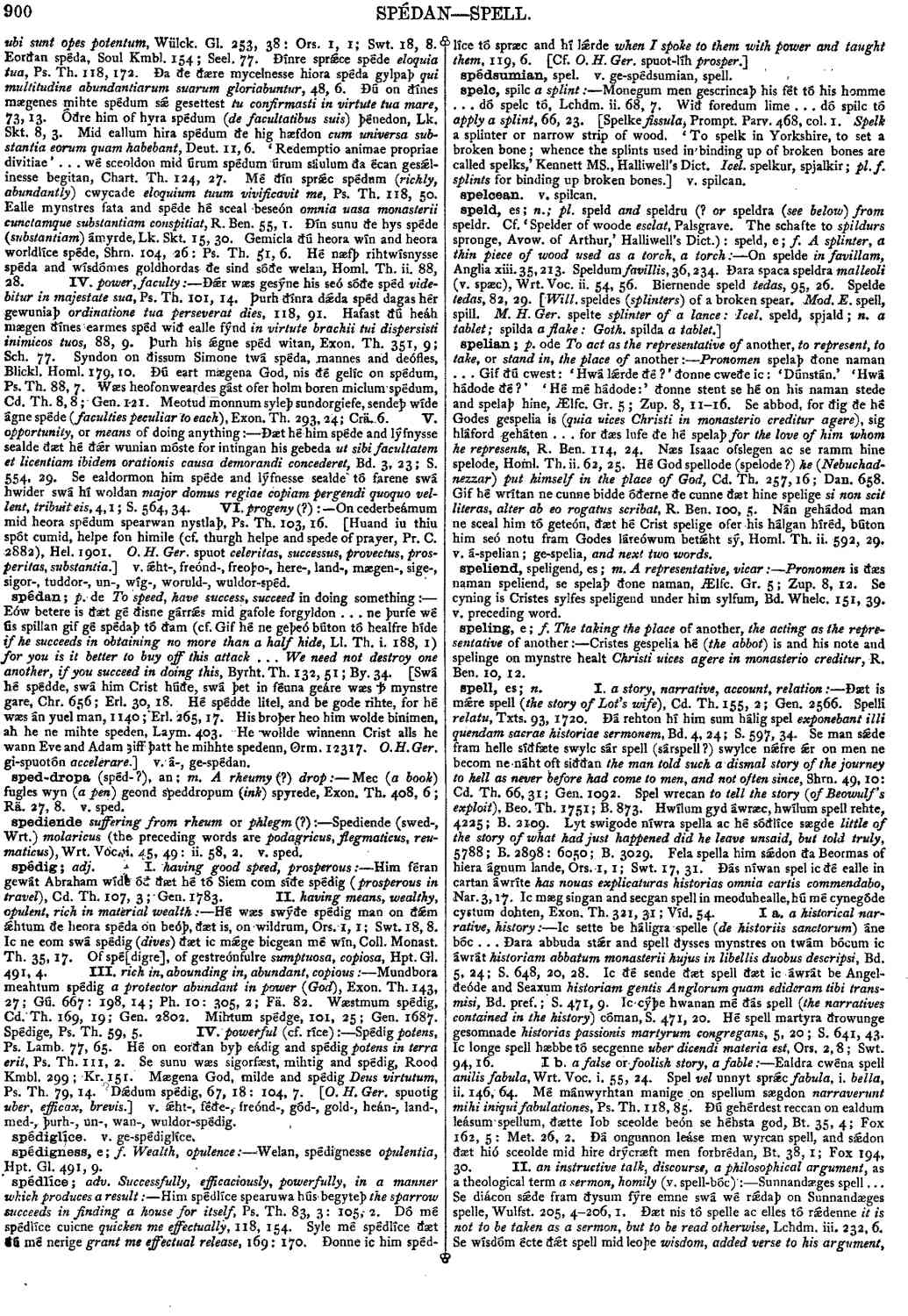spelian
- verb [ weak ]
-
Pronomen
spelaþ ðone naman ... Gif ðú cwest: 'Hwá lǽrde ðé?' ðonne cweðe ic: 'Dúnstán.' 'Hwá hádode ðé?' 'Hé mé hádode:' ðonne stent se hé on his naman stede and spelaþ hine,- Ælfc. Gr. 5; Zup. 8, 11-16.
-
Se abbod, for ðig ðe hé Godes gespelia is (quia uices Christi in monasterio creditur agere), sig hláford geháten ... for ðæs lufe ðe hé spelaþ
for the love of him whom he represents,
- R. Ben. 114, 24.
-
Næs Isaac ofslegen ac se ramm hine spelode,
- Homl. Th. ii. 62, 25.
-
Hé God spellode (spelode ?)
he (Nebuchadnezzar) put himself in the place of God,
- Cd. Th. 257, 16; Dan. 658.
-
Gif hé wrítan ne cunne bidde óðerne ðe cunne ðæt hine spelige
si non scit literas, alter ab eo rogatus scribat,
- R. Ben. 100, 5.
-
Nán gehádod man ne sceal him tó geteón, ðæt hé Crist spelige ofer his hálgan híréd, búton him seó notu fram Godes láreówum betǽht sý,
- Homl. Th. ii. 592, 29. v. á-spelian; ge-spelia, and next two words.
Bosworth, Joseph. “spelian.” In An Anglo-Saxon Dictionary Online, edited by Thomas Northcote Toller, Christ Sean, and Ondřej Tichy. Prague: Faculty of Arts, Charles University, 2014. https://bosworthtoller.com/28442.
Checked: 0